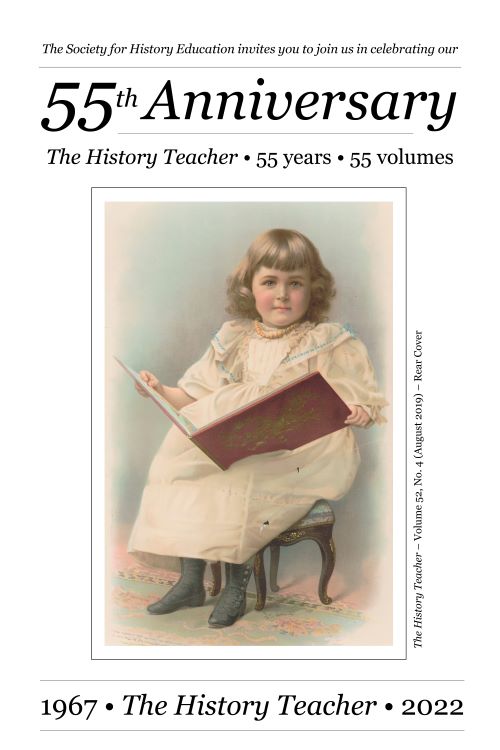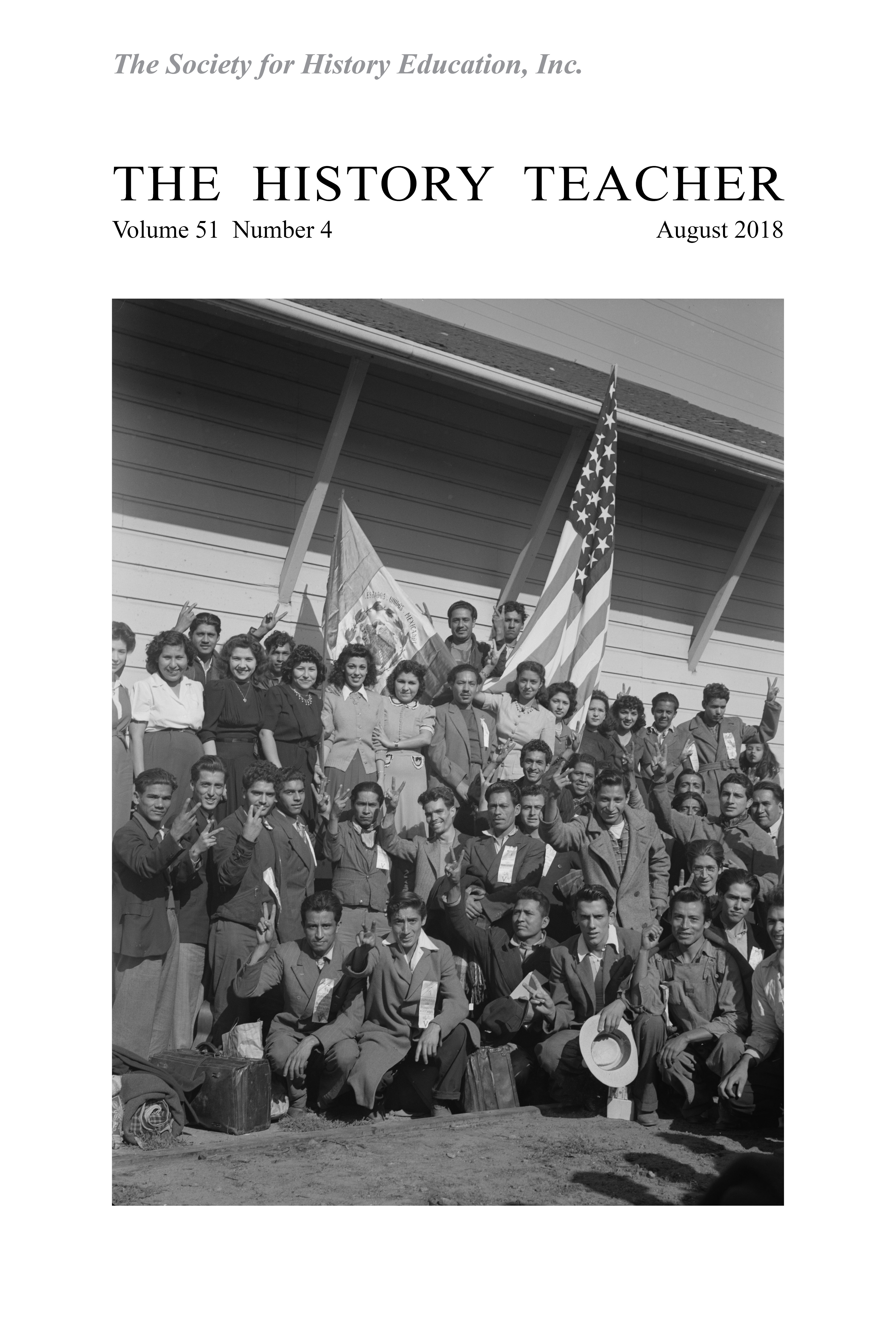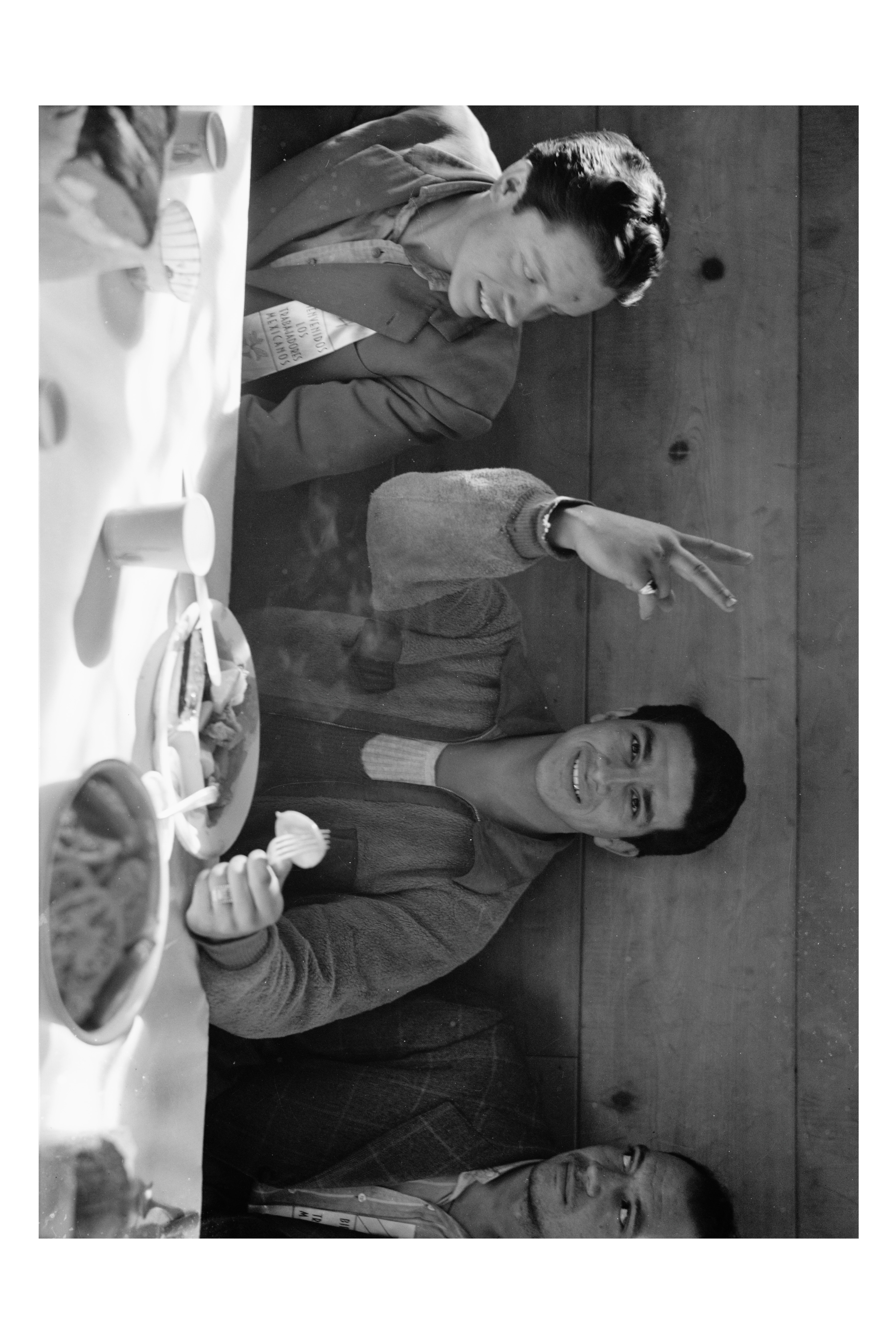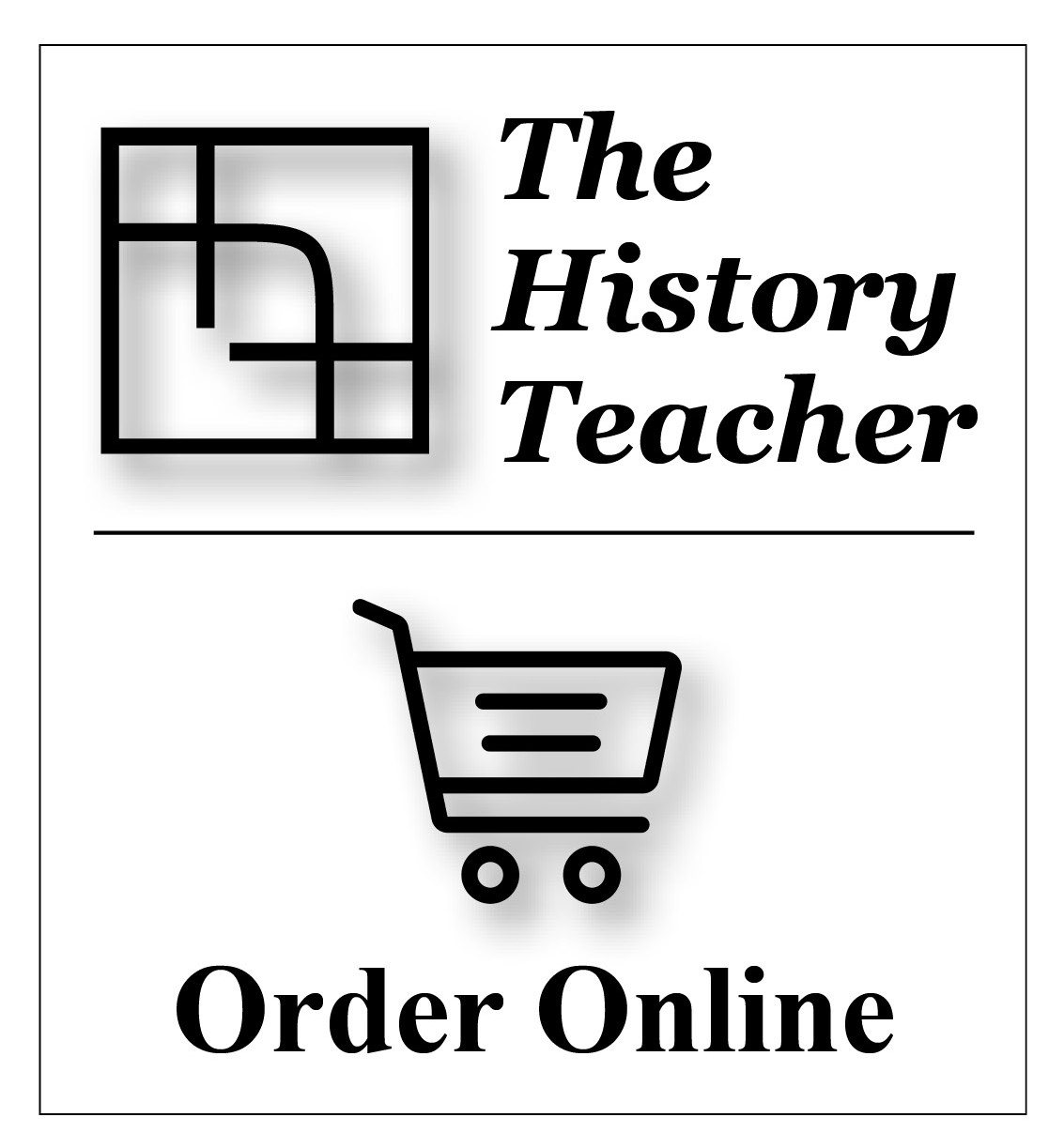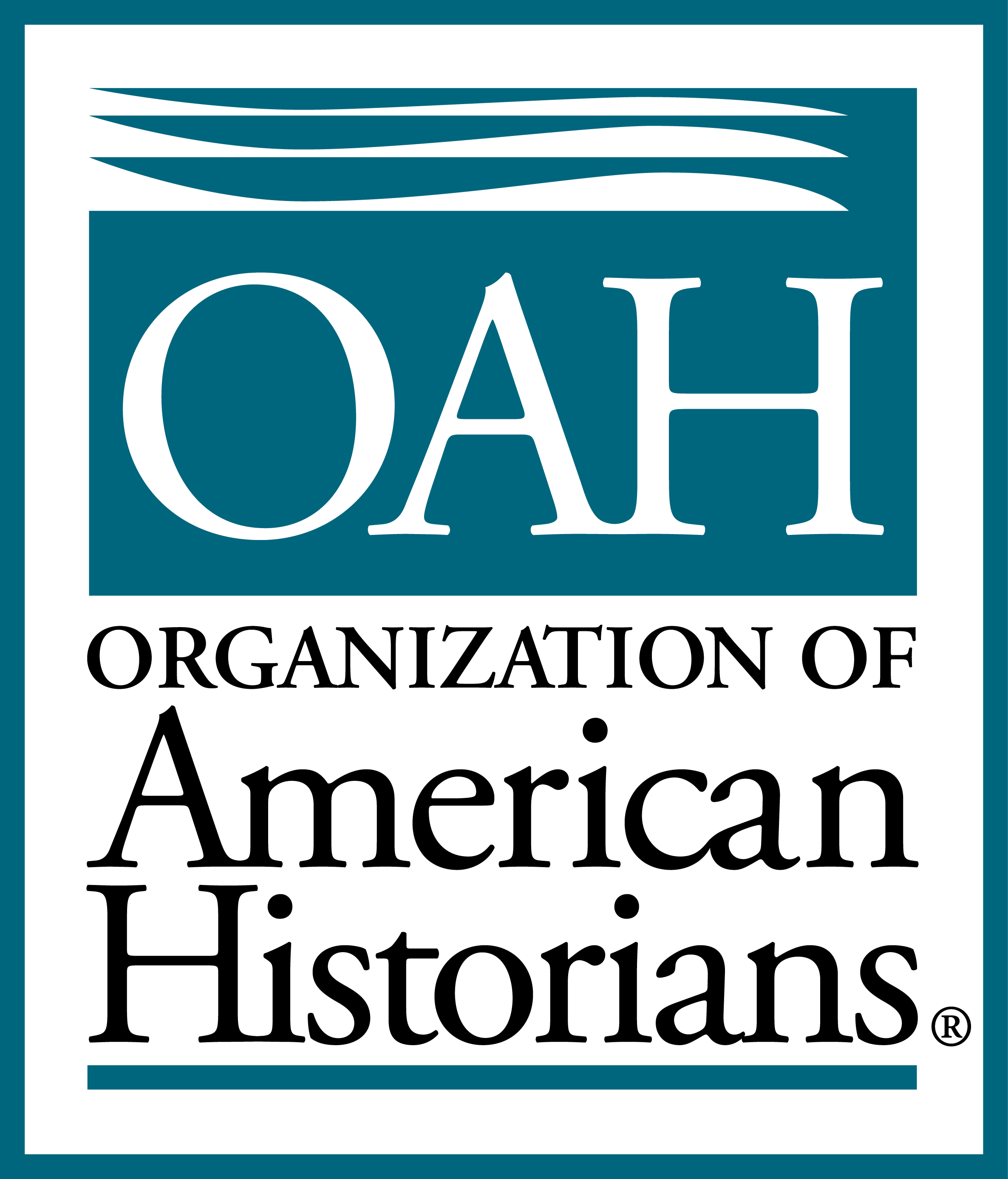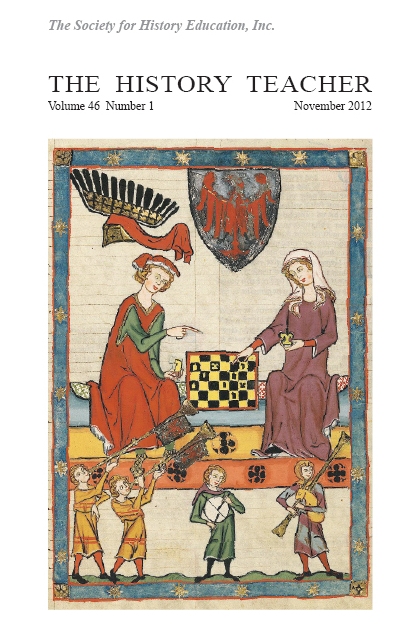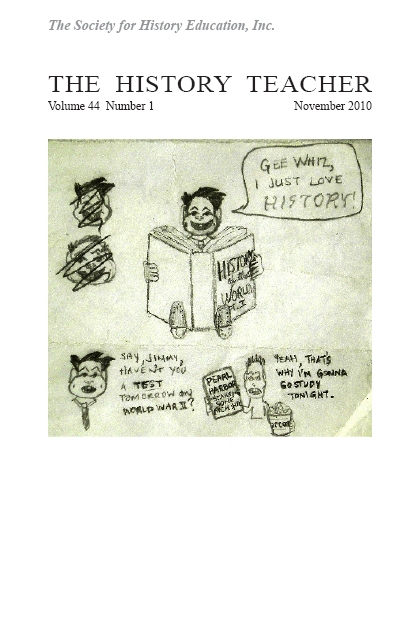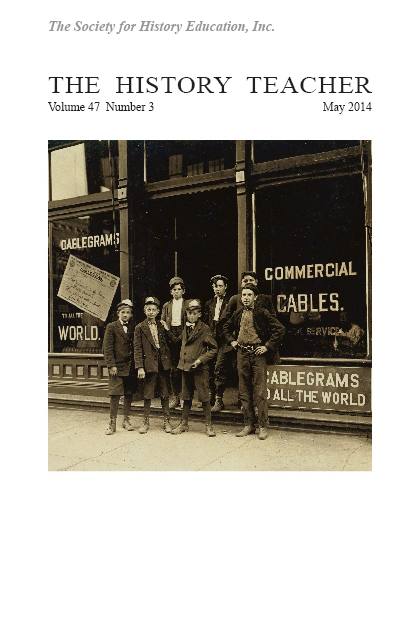The History Teacher
Volume 51, No. 4
August 2018
Front Matter | Back Matter
THE CRAFT OF TEACHING
Online and Hybrid History Classrooms
Building History Enrollments Through Online Courses for the Professions: Lessons from Teaching the History of Engineering
by Christopher F. Jones
(pp. 549-572)
Teaching Hidden History: Student Outcomes from a Distributed, Collaborative, Hybrid History Course
by Kelly Schrum, Nate Sleeter, Anthony Pellegrino, and Celeste Tường Vy Sharpe
(pp. 573-596)
Spatial Identities, Online Strategies, and the Teaching of Britain's "Long Eighteenth Century"
by Timothy Jenks
(pp. 597-610)
Enhancing Student Engagement through Flipping: A Case Study in Australian History
by Tanya Evans
(pp. 611-638)
U.S. and International Interconnectedness
Poultry and Pedagogy in Mississippi and Mexico: Bridging African American and Latin American History in the College Classroom
by Matthew Casey and Rebecca Tuuri
(pp. 639-659)
Teaching the History of the Cold War through the Lens of Immigration
by Kimber M. Quinney
(pp. 661-696)
NOTES AND COMMENTS
Oral History as Inquiry: Using Digital Oral History Collections to Teach School Desegregation
by Yonghee Suh and Brian J. Daugherity
(pp. 697-709)
SPECIAL SECTION
Index to Volume 51
(pp. 711-716)
IN EVERY ISSUE
546 Contributors to The History Teacher
717 Questionnaire for Potential Reviewers
718 Membership/Subscription Information
720 Submission Guidelines for The History Teacher
ADVERTISERS IN THIS ISSUE
660 Association for Asian Studies: 2019 AAS Annual Conference
710 Society For History Education: Celebrating 50 Years
CONTRIBUTORS
Matthew Casey (Ph.D., University of Pittsburgh, 2012) is the Nina Bell Suggs Professor of History at the University of Southern Mississippi, where he teaches courses on Latin American and Caribbean history. He serves as co-director of the Center for the Study of the Gulf South and has published numerous articles on Haiti and Cuba. His book, Empire's Guestworkers: Haitian Migrants in Cuba during the Age of US Occupation, was published by Cambridge University Press in 2017.
Brian J. Daugherity received his Ph.D. in U.S. History from the College of William & Mary. He currently serves as an Associate Professor of History at Virginia Commonwealth University. His research focuses on the Civil Rights Movement in Virginia, particularly the process of school integration. He is author of Keep On Keeping On: The NAACP and the Implementation of Brown v. Board of Education in Virginia (The University of Virginia Press, 2016), and co-editor of With All Deliberate Speed: Implementing Brown v. Board of Education (University of Arkansas Press, 2008).
Tanya Evans earned her Ph.D. in History from the University of London in 2002. She is currently a Senior Lecturer in the Department of Modern History at Macquarie University in Sydney, Australia, where she teaches Australian history and public history. Her disciplinary research is focused on the history of the family, poverty, and sexuality in Britain and Australia from the eighteenth century to the present. Her current learning and teaching research is focused on employability and transformational learning in the work-integrated learning of her undergraduate public history students.
Timothy Jenks (Ph.D., University of Toronto, 2001) is an Associate Professor and Director of Undergraduate Studies in History at East Carolina University. He is the author of Naval Engagements: Patriotism, Cultural Politics and the Royal Navy, 1793-1815 (Oxford University Press, 2006) and other articles on late eighteenth-century Britain. Jenks teaches world history surveys and upper-level courses on modern Britain, modern Europe, war and society, and serves as an academic advisor.
Christopher F. Jones received his Ph.D. from the University of Pennsylvania's History & Sociology of Science Department. He is currently an Assistant Professor at Arizona State University, where he teaches the history of energy, business, environment, and engineering. He is the author of Routes of Power: Energy and Modern America (Harvard University Press, 2014).
Anthony Pellegrino is an Assistant Professor of Social Studies/History Education in the Secondary Education Program at George Mason University. He received his doctorate in Secondary Social Science Education from Florida State University. His research interests include pre-service history education and using music in secondary history/social studies classrooms. Pellegrino is the co-author of Let the Music Play! Harnessing the Power of Music for History and Social Studies Classrooms (Information Age Publishing, 2012) and has published articles related to the teaching of history, reflective education, and pedagogy for pre-service teachers.
Kimber M. Quinney is an Assistant Professor of History at California State University, San Marcos, and Advisor and Coordinator of the History-Social Science major, designed for students who want to become teachers. A historian of U.S. foreign relations, her research focuses on the ways in which Italian Americans influenced early Cold War policy toward Italy, including policies pertaining to ideology—fascism, communism, and democracy. She holds a Ph.D. in History from the University of California, Santa Barbara.
Yonghee Suh is an Associate Professor of Social Studies Education at Old Dominion University. She researches disciplinary literacy practices in social studies/history, focusing on how teachers and students engage a variety of primary and secondary sources. She coordinates and teaches courses in the Secondary Education Master's Program. She served as a co-director of The Landmarks of American History and Culture Workshops for School Teachers, "The Long Road from Brown: School Desegregation in Virginia," which features oral history as its signature pedagogy.
Kelly Schrum is the director of educational projects at the Roy Rosenzweig Center for History and New Media and is an Associate Professor in the Higher Education Program at George Mason University. She has published widely on history education, teacher professional development, online learning, and digital humanities, and directs numerous digital history education projects, including Teachinghistory.org. She served as Academic Program Director on multiple Teaching American History grants. Schrum holds a Ph.D. in History from Johns Hopkins University.
Nate Sleeter earned his Ph.D. in U.S. History from George Mason University in 2017 and is a Digital Teaching and Learning Specialist at the Roy Rosenzweig Center for History and New Media (RRCHNM). Sleeter has taught several online courses for K-12 teachers and has twice co-taught a hybrid graduate course, Teaching Hidden History, focused on digital history, history education, and best practices in teaching and learning. Sleeter has co-authored several articles on online teaching and learning.
Celeste Tường Vy Sharpe earned her Ph.D. in History and Art History at George Mason University in 2017. She received her M.A. in History from the University of Calgary, and her B.A. from California State University, Bakersfield with a major in History and minor in Philosophy. Her primary research interest is in the role of visual culture in constructing social identities. Her dissertation, titled "They Need You!: Disability, Visual Culture, and the Poster Child, 1945-1980," examines how charitable organizations, disabled children and their families, and the public understood and shaped ideas about disability, identity, philanthropy, family, and the nation after World War II.
Rebecca Tuuri (Ph.D., Rutgers University, 2012) is an Assistant Professor of History at the University of Southern Mississippi, where she teaches African American history, women's and gender history, and world history. Her book, Strategic Sisterhood: The National Council of Negro Women in the Black Freedom Struggle, was published by The University of North Carolina Press in 2018. She has authored an article in the Journal of Women's History and a chapter in U.S. Women's History: Untangling the Threads of Sisterhood (Rutgers University Press, 2017), and has recently won a NEH Summer Stipend.
|
